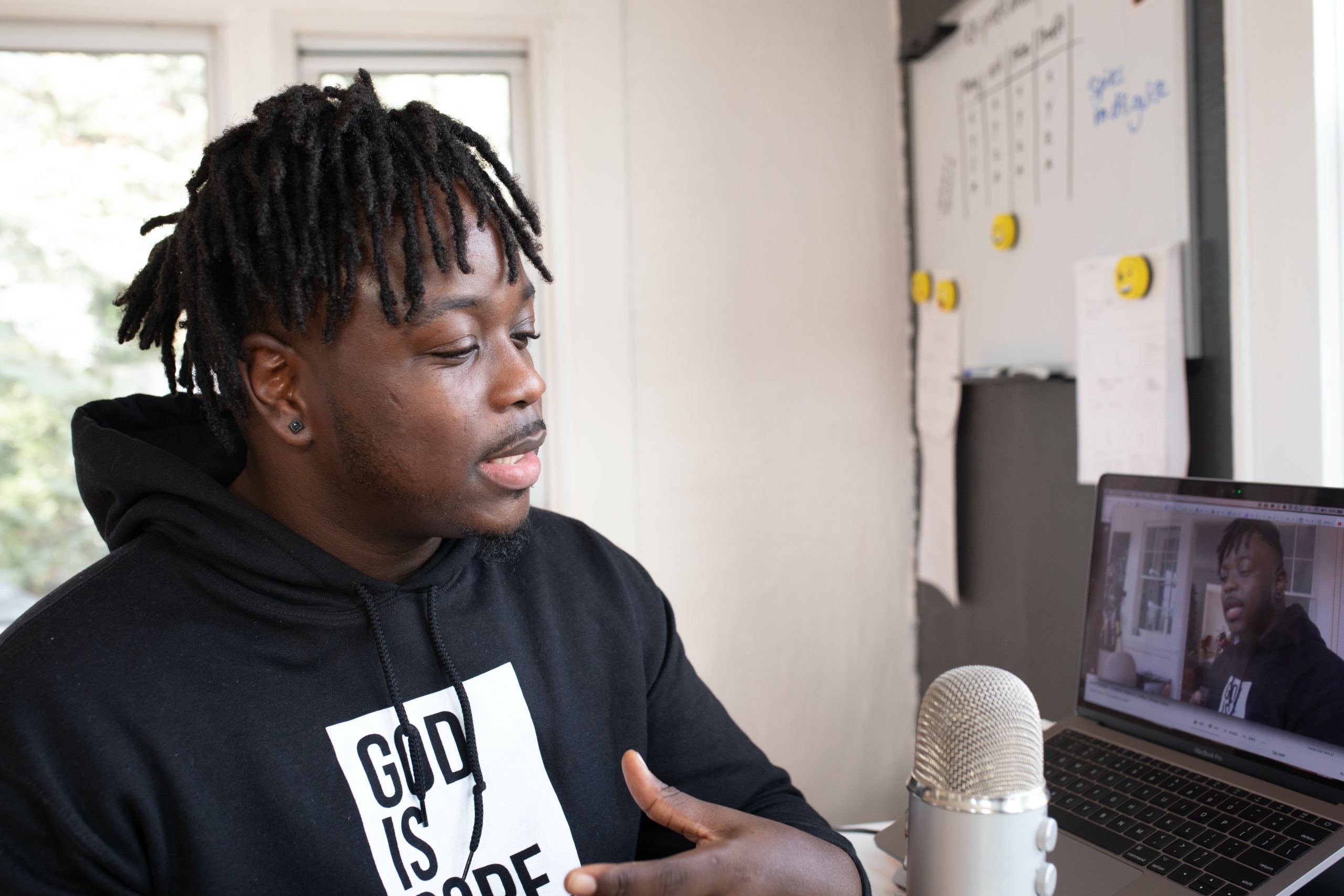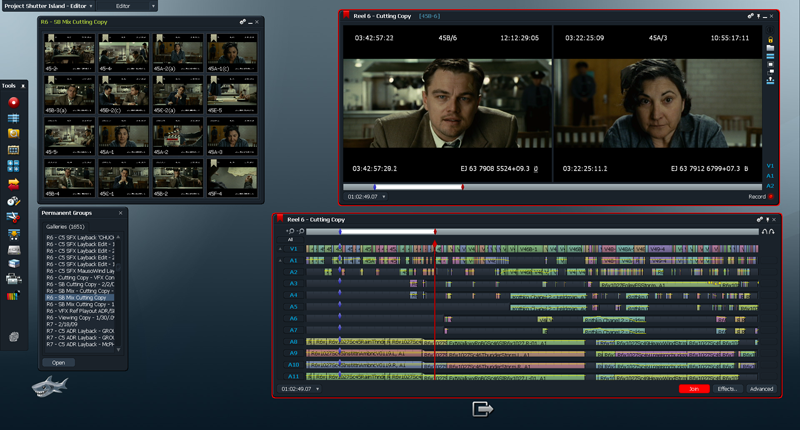In recent years, podcasting has gained popularity around the world as a medium of communication, entertainment and information dissemination. Just like videos, podcasting has become an essential tool for storytelling, marketing, promoting and education. While Nigeria is still lagging behind in the podcasting industry, the potential for growth and earning is immense.
It’s amazing to see how this medium has become a powerful tool for self-expression and storytelling in Nigeria, from discussing pop culture to sharing political opinions, young Nigerians are using podcasts to connect with others who share similar interests and perspectives.
It’s pretty impressive how podcasts are providing a platform for young people to share their stories and experiences on their own terms. With traditional media often being limited and controlled, podcasts offer a unique opportunity for young Nigerians to speak their minds freely. With social media and the internet revolutionizing the way we consume media, it’s no surprise that podcasts have become a popular way for young Nigerians to share their voices and engage with a global audience.
IDENTIFYING THE GAP PODCASTING SEEKS TO FILL IN NIGERIA
Nigeria is a country with over 200 million people, and the media industry is vast, but it is dominated by a few players. Traditional media, such as television, radio and print, are still the primary sources of information and entertainment for most Nigerians. However, podcasting seeks to fill the gap that these traditional media cannot fill. Podcasts offer a unique perspective, engaging content, and the freedom to express opinions without censorship.
Podcasting is a medium that is easily accessible and affordable to produce. It provides a platform for individuals and businesses to share their stories, ideas and opinions with a global audience. The rise of podcasting has created an avenue for people to express themselves and create content that is specific to their interests.
One of the reasons why podcasts will become a media staple very soon is the low barrier for entry.
Starting a podcast requires some basic equipment, technical know-how, and creativity. Here are some things you need to start a podcast in Nigeria:
A concept: The first step to starting a podcast is to identify your niche and develop a concept for your podcast. Consider your target audience, your unique perspective, and what topics you are passionate about.
Recording equipment: You will need basic recording equipment such as a microphone, headphones, and a laptop or computer. There are several affordable microphone options available in Nigeria, ranging from USB microphones to XLR microphones.
Audio editing software: To produce a professional-sounding podcast, you will need to edit your audio. Popular audio editing software includes Audacity, GarageBand, and Adobe Audition.
Hosting platform: You will need a platform to host your podcast and distribute it to listeners. Some popular podcast hosting platforms include SoundCloud, Libsyn, and Anchor.
Internet connectivity: As with any online venture, having reliable and fast internet connectivity is crucial to producing and distributing your podcast.
Promotion and marketing: To grow your audience, you will need to promote and market your podcast. This can include social media marketing, guest appearances on other podcasts, and advertising.
OVERVIEW OF THE PODCASTING SPACE IN NIGERIA
The podcasting industry is still in its early stages in Nigeria, and there are a few pioneers in the industry. A major pioneer of podcasting in Nigeria is Feyikemi Abudu, the co-founder of the I Said What I Said podcast. Feyikemi Abudu and her co-host Jola Ayeye launched their podcast in 2019, and it has become one of the most listened-to podcasts in Nigeria. The podcast covers various topics such as culture, lifestyle, relationships and entertainment.
Also, the success stories of F&S Uncensored podcast indicate that it can be a profitable venture for Nigerians. However, it comes with its own set of challenges. One of the primary challenges is the lack of infrastructure and the high cost of data in Nigeria. This makes it difficult for podcasts to reach a wider audience, as most Nigerians cannot afford to stream or download podcasts due to data costs.
Unlike traditional media, podcasters have to rely on sponsorships and advertising to monetize their content. This can be a significant challenge, especially for new podcasters, who do not have a large audience.
In an Interview with BOUNCE RADIO, one of the duo Simi said, “What’s missing In this space is brands do not completely understand the power or value of podcasts, therefore most podcasts struggle to raise funds.”
THE FUTURE OF PODCASTING IN NIGERIA
The future of podcasting in Nigeria looks promising. With the rise of social media and internet access, more Nigerians are discovering podcasts and are eager to create their own content. Podcasting provides an opportunity for local content to reach a global audience, which can help promote Nigeria’s culture and tourism industry.
The earning capacity of podcasting in Nigeria is also significant. As more businesses and individuals turn to podcasting to promote their products and services, the demand for podcast advertising and sponsorship will increase. This presents an opportunity for podcasters to monetize their content and generate income.
Unfortunately, there is currently limited research on podcast habits and listener ship in Nigeria, specifically. However, there are some broader trends and statistics that can give us an idea of the potential for podcasting in Nigeria.
According to a report by Statista, the number of podcast listeners worldwide is projected to reach 1.86 billion by 2023, up from 1.32 billion in 2019. This growth is being driven by the increasing availability of smartphones and high-speed internet access, as well as the growing popularity of on-demand audio content.
In Nigeria, there has been a significant increase in the number of people with access to smartphones and high-speed internet in recent years. According to a report by the National Bureau of Statistics, the number of internet users in Nigeria grew from 90.2 million in 2017 to 123.5 million in 2019. This increase in internet access has created opportunities for on-demand audio content like podcasts.
While there is limited data on the specific number of podcast listeners in Nigeria, a report by the Reuters Institute for the Study of Journalism found that 41% of people in sub-Saharan Africa listen to podcasts at least once a month. The report also found that younger people are more likely to listen to podcasts, with 55% of those aged 18-24 saying they listen to podcasts at least once a month.
Overall, while there is limited data on podcast habits and listenership in Nigeria specifically, broader trends suggest that there is a growing potential audience for on-demand audio content like podcasts. As internet access and smartphone ownership continue to grow in Nigeria, it is likely that podcasting will become an increasingly popular form of media consumption in the country.
ISSUES AROUND INTERNET REGULATION, LICENSING AND HOW IT SHAPES THE SPACE
Internet regulation and licensing are crucial issues that may affect the podcasting industry in Nigeria. The Nigerian government has been known to clamp down on social media and internet platforms in the past, and there is a concern that podcasting could be subject to the same regulations.
In 2021, a Nigerian newspaper The Cable report says that Armstrong Idachaba, the then NBC Director-General, called on social media platforms and online streaming platforms to get licensed.
Idachaba said that the NBC establishment code empowers the commission to ask the companies to be licensed.
Section two (b) of the NBC act of 2004 states: “(1) The Commission shall have [the] responsibility of: Receiving, processing and considering applications for the establishment, ownership or operation of radio and television stations including (i) cable television services, direct satellite broadcast and any other medium of broadcasting.”
“The National Broadcasting Commission (NBC) hereby directs every Online Broadcast Service provider and Social Media Platforms operating within the Nigerian State to apply and obtain broadcast licence for their service(s).
Currently, there is a requirement for online radio stations to obtain a license from the NBC but it is unclear if it affects podcasts. The NBC has stated that online broadcasters are subject to the same rules on hate speech, incitement to violence, and indecent content as traditional broadcasters. One can deduce that the more impact and popular a podcast becomes it will come under the radar of the government, mostly not for good. The disadvantage is that if government highhandedness comes into play, it will scare off a intending and existing podcasters.
ADVANTAGES OF SETTING UP A PODCAST
Setting up a podcast has many advantages, especially for businesses. Podcasting provides an opportunity for businesses to reach a new audience and promote their products and services. It also allows businesses to establish themselves as thought leaders in their industries and build a community around their brand.
For individuals, setting up a podcast can be a great way to express their opinions, share their experiences and connect with like-minded individuals. It can also provide an opportunity for personal growth and development.
CONCLUSION
Podcasting is a new path to media ownership in Nigeria, and the industry is still in its early stages. However, the potential for growth and earning is immense, and the success stories of pioneers like John Obidi and Feyikemi Abudu show that podcasting can be a profitable venture. Despite the challenges, podcasting provides an opportunity for individuals and businesses to express themselves and create content that is specific to their interests. As internet access and social media continue to grow in Nigeria, the future of podcasting looks bright.
Tags: #podcasting, digitallagos, nigeria










